|
Tuesday June 22nd, In Person and Virtual Fulton Room – Hilton Hotel Riverside |
|||
| Chairs
Tao Zhang, US National Institute of Standards and Technology (NIST), Gaithersburg, MD USA |
|||
| US Eastern Time |
Session |
Presentation |
Speakers |
|
08:30am-10:30am
|
Work2.1 |
08:30am – 08:50am | Prof. Tony Quek, Singapore University of Technology and Design, Singapore
“Towards Massive, Ultra-Reliable, and Low-Latency Communications” |
| 08:50am – 09:10am | Prof. Jianwei Huang, Chinese University of Hong Kong, Shenzhen, China
“Incentive Mechanism Design for Crowd Systems” |
||
| 09:10am – 09:30am | Prof. Hung-Yu Wei , National Taiwan University, Taipei, Taiwan
“Enable Intelligent Edge/Fog Computing and Networking with Management and Orchestration Mechanisms” |
||
| 09:30am – 09:50am | Prof. Hank C.Y. Huang, National Yang Min Chiao Tung University, Tainan, Taiwan
“Edge Computing in Practice” |
||
| 09:50am – 10:10am | Dr. Chun-Ting Chou, CEO and Co-Founder, OmniEyes Inc., Taipei, Taiwan
“Video Uberization of Mobile Videos Using Edge AI Computing” |
||
| 10:10am – 10:30am | Mr. Mike Yuan-Yao Lou, Purdue University, West Lafayette, IN USA
Prof. Russell Hsing, National Chiao Tung University, Taiwan Dr. Stephen B. Weinstein, Life Fellow “ML-Powered Fog/Edge Computing System towards Future 6G Network” |
||
| Plenary | |||
|
01:30pm-03:30pm
|
Work2.2 |
01:30pm – 02:00pm | Prof. Rajesh M. Hegde, Indian Institute of Technology, Kanpur, India
“Machine Learning for Energy Efficient Data Transmission in IoT Networks” |
| 02:00pm – 02:30pm | Dr. Flavio Cirillo, NEC Laboratories Europe (NLE), Heidelberg, Germany
“Fog and Edge Data Analytics in the 5G Era” |
||
| 02:30pm – 03:00pm | Prof. Leandros Maglaras, De Montfort University, Leicester, UK
“Security and Privacy Challenges in Emerging Fog Computing Applications” |
||
| 03:00pm – 03:30pm | Prof. Junshan Zhang, Arizona State University, Phoenix, AZ USA
“Smart Vehicles in the Making: Convergence of Sensing, Communication, Computing and Control” |
||
| Break | |||
|
04:00pm-06:00pm
|
Work2.3
|
04:00pm – 04:30pm | Prof. Christopher Brinton, Purdue University, USA
“Context-Aware Distributed Learning for Heterogeneous Fog Network Systems” |
| 04:30pm – 05:00pm | Mr. Eric Simone, ClearBlade, Austin, TX USA
“Modernizing Infrastructure with Intelligent Assets” |
||
| 05:00pm – 05:30pm | Dr. Tomasz Żernicki, CEO of Zylia, Poland
“Streaming of live virtual concerts – the application of Virtual Reality and navigable 3D audio for live events” |
||
| 05:30pm – 06:00pm | Dr. Tao Zhang, NIST, Gaithersburg, MD USA
“From Edge/Fog Computing to Edge/Fog Intelligence”
|
||
Tao Zhang, US National Institute of Standards and Technology (NIST)
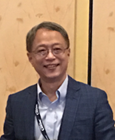 Dr. Tao Zhang, an IEEE Fellow, has been leading research, product development, and corporate strategies to create disruptive innovations and transform them into practical solutions, standards, and products for 30 years. He is currently managing the Emerging Networking Technologies Group at the US National Institute of Standards and Technology (NIST). He was the CTO for the Smart Connected Vehicles Business at Cisco Systems, where he also led research and corporate strategies on fog/edge computing. He was Chief Scientist and Director of Research at Telcordia Technologies (formerly Bell Communications Research and originally part of the Bell Labs), where he led breakthrough research on wireless and vehicular networking. He cofounded two influential industry consortia (Open Fog Consortium and Connected Vehicle Trade Association) and served as a founding Board Director for them. Tao holds ~60 US patents and coauthored two books “Vehicle Safety Communications: Protocols, Security, and Privacy” and “IP-Based Next Generation Wireless Networks”, several book chapters, and over 80 peer-reviewed papers. He served as the CIO and a Board Governor of the IEEE Communications Society and as a Distinguished Lecturer of the IEEE Vehicular Technology Society. He cofounded multiple international conferences and served on leadership roles for many conferences and journals.
Dr. Tao Zhang, an IEEE Fellow, has been leading research, product development, and corporate strategies to create disruptive innovations and transform them into practical solutions, standards, and products for 30 years. He is currently managing the Emerging Networking Technologies Group at the US National Institute of Standards and Technology (NIST). He was the CTO for the Smart Connected Vehicles Business at Cisco Systems, where he also led research and corporate strategies on fog/edge computing. He was Chief Scientist and Director of Research at Telcordia Technologies (formerly Bell Communications Research and originally part of the Bell Labs), where he led breakthrough research on wireless and vehicular networking. He cofounded two influential industry consortia (Open Fog Consortium and Connected Vehicle Trade Association) and served as a founding Board Director for them. Tao holds ~60 US patents and coauthored two books “Vehicle Safety Communications: Protocols, Security, and Privacy” and “IP-Based Next Generation Wireless Networks”, several book chapters, and over 80 peer-reviewed papers. He served as the CIO and a Board Governor of the IEEE Communications Society and as a Distinguished Lecturer of the IEEE Vehicular Technology Society. He cofounded multiple international conferences and served on leadership roles for many conferences and journals.
Eric Simone, CEO/Founder, ClearBlade, Inc.
 Eric Simone is the Founder and CEO of ClearBlade Inc., an Intelligent Assets software company delivering the promise of IoT and Edge Computing to business people delivering industrial and commercial solutions across several verticals including transportation, infrastructure, and logistics. Prior to starting ClearBlade, Eric was the founder and CEO of Compete Incorporated, an enterprise services company which he sold to Perficient Inc. (PRFT) in May of 2000. Earlier in his career, Eric achieved success in senior engineering, product, and sales positions at IBM and Johns Hopkins Hospital. Eric has a degree in Computer Science from Purdue University and is a recognized Distinguished Alumni. Eric resides in Austin, Texas with his wife Toni and 2 sons, Xander and Dexter.
Eric Simone is the Founder and CEO of ClearBlade Inc., an Intelligent Assets software company delivering the promise of IoT and Edge Computing to business people delivering industrial and commercial solutions across several verticals including transportation, infrastructure, and logistics. Prior to starting ClearBlade, Eric was the founder and CEO of Compete Incorporated, an enterprise services company which he sold to Perficient Inc. (PRFT) in May of 2000. Earlier in his career, Eric achieved success in senior engineering, product, and sales positions at IBM and Johns Hopkins Hospital. Eric has a degree in Computer Science from Purdue University and is a recognized Distinguished Alumni. Eric resides in Austin, Texas with his wife Toni and 2 sons, Xander and Dexter.
Title: Modernizing Infrastructure with Intelligent Assets
Abstract: There is an ever present need to modernize infrastructure in multiple industries across the world. The need to provide more efficient transportation, more reliable power, cleaner water, and more productive farming grows greater by the day and we need a better way to enable the business to apply modern technologies in a simpler way. We all depend on infrastructure, our future and our planet’s future relies on having a modern highly capable infrastructure.
The industry is shifting – Intelligent Assets is driving the modernization of infrastructure by combining edge computing, no-code, artificial intelligence and hardware to deliver an experience that doesn’t require a computer science degree to roll out. Companies are modernizing infrastructure and scaling in weeks with Intelligent Assets as their business units do their own automation. Now is the time to begin implementing Intelligent Assets and start on the path to creating more modern infrastructures.
Leandros A. Maglaras, the School of Computer Science and Informatics of De Montfort University
 Dr. Leandros A. Maglaras is an Associate Professor in the School of Computer Science and Informatics of De Montfort University, conducting research in the Cyber Security Centre. From September 2017 to November 2019, he was the Director of the National Cyber Security Authority of Greece. He obtained the B.Sc. (M.Sc. equivalent) in Electrical and Computer Engineering from the Aristotle University of Thessaloniki, Greece in 1998, M.Sc. in Industrial Production and Management from the University of Thessaly in 2004, and M.Sc. and Ph.D. degrees in Electrical & Computer Engineering from University of Thessaly, in 2008 and 2014 respectively. In 2018 he was awarded a Ph.D. in Intrusion Detection in SCADA systems from the University of Huddersfield. He serves on the Editorial Board of several international peer-reviewed journals such as IEEE Access, Elsevier Array and Wiley Journal on Security & Communication Networks. He is featured in Stanford University’s list of the world Top 2% scientists for the year 2019. He is a Senior Member of the Institute of Electrical & Electronics Engineers (IEEE) and is an author of more than 160 papers in scientific magazines and conferences.
Dr. Leandros A. Maglaras is an Associate Professor in the School of Computer Science and Informatics of De Montfort University, conducting research in the Cyber Security Centre. From September 2017 to November 2019, he was the Director of the National Cyber Security Authority of Greece. He obtained the B.Sc. (M.Sc. equivalent) in Electrical and Computer Engineering from the Aristotle University of Thessaloniki, Greece in 1998, M.Sc. in Industrial Production and Management from the University of Thessaly in 2004, and M.Sc. and Ph.D. degrees in Electrical & Computer Engineering from University of Thessaly, in 2008 and 2014 respectively. In 2018 he was awarded a Ph.D. in Intrusion Detection in SCADA systems from the University of Huddersfield. He serves on the Editorial Board of several international peer-reviewed journals such as IEEE Access, Elsevier Array and Wiley Journal on Security & Communication Networks. He is featured in Stanford University’s list of the world Top 2% scientists for the year 2019. He is a Senior Member of the Institute of Electrical & Electronics Engineers (IEEE) and is an author of more than 160 papers in scientific magazines and conferences.
Title: Security and Privacy Challenges in Emerging Fog Computing applications
Jianwei Huang, ComSoc Distinguished Lecturer and a Clarivate Web of Science Highly Cited Researcher
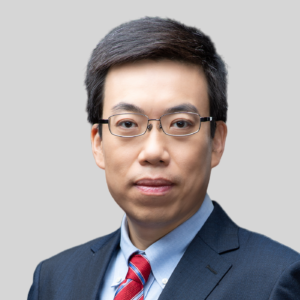 Jianwei Huang received the Ph.D. degree in ECE from Northwestern University in 2005, and worked as a Postdoc Research Associate in Princeton University during 2005-2007. From 2007 until 2018, he was on the faculty of Department of Information Engineering, The Chinese University of Hong Kong. Since 2019, he has been on the faulty at The Chinese University of Hong Kong, Shenzhen, where he is currently a Presidential Chair Professor and an Associate Dean of the School of Science and Engineering. He also serves as a Vice President of Shenzhen Institute of Artificial Intelligence and Robotics for Society. His research interests are in the area of network optimization, network economics, and network science, with applications in communication networks, energy networks, data markets, crowd intelligence, and related fields. He has published more than 300 papers in leading venues, with a Google Scholar citation of 13000+ and an H-index of 58. He has co-authored 9 Best Paper Awards, including the 2011 IEEE Marconi Prize Paper Award in Wireless Communications. He has co-authored seven books, including the textbook on “Wireless Network Pricing.” He is an IEEE Fellow, and was an IEEE ComSoc Distinguished Lecturer and a Clarivate Web of Science Highly Cited Researcher. He is the Editor- in-Chief of IEEE Transactions on Network Science and Engineering, and was the Associate Editor- in-Chief of IEEE Open Journal of the Communications Society.
Jianwei Huang received the Ph.D. degree in ECE from Northwestern University in 2005, and worked as a Postdoc Research Associate in Princeton University during 2005-2007. From 2007 until 2018, he was on the faculty of Department of Information Engineering, The Chinese University of Hong Kong. Since 2019, he has been on the faulty at The Chinese University of Hong Kong, Shenzhen, where he is currently a Presidential Chair Professor and an Associate Dean of the School of Science and Engineering. He also serves as a Vice President of Shenzhen Institute of Artificial Intelligence and Robotics for Society. His research interests are in the area of network optimization, network economics, and network science, with applications in communication networks, energy networks, data markets, crowd intelligence, and related fields. He has published more than 300 papers in leading venues, with a Google Scholar citation of 13000+ and an H-index of 58. He has co-authored 9 Best Paper Awards, including the 2011 IEEE Marconi Prize Paper Award in Wireless Communications. He has co-authored seven books, including the textbook on “Wireless Network Pricing.” He is an IEEE Fellow, and was an IEEE ComSoc Distinguished Lecturer and a Clarivate Web of Science Highly Cited Researcher. He is the Editor- in-Chief of IEEE Transactions on Network Science and Engineering, and was the Associate Editor- in-Chief of IEEE Open Journal of the Communications Society.
Tony Quek University, Singapore University of Technology and Design (SUTD)
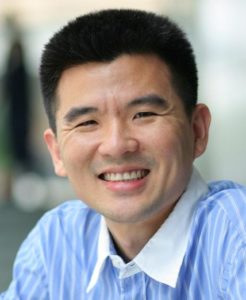 Tony Q.S. Quek received the B.E. and M.E. degrees in Electrical and Electronics Engineering from Tokyo Institute of Technology, Tokyo, Japan, respectively. At Massachusetts Institute of Technology (MIT), Cambridge, MA, he earned the Ph.D. in Electrical Engineering and Computer Science. Currently, he is the Cheng Tsang Man Chair Professor with Singapore University of Technology and Design (SUTD). He also serves as the Head of ISTD Pillar, the Director of Future Communications R&D Programme, and the Deputy Director of SUTD-ZJU IDEA. His current research topics include wireless communications and networking, big data processing, network intelligence, URLLC, and IoT.
Tony Q.S. Quek received the B.E. and M.E. degrees in Electrical and Electronics Engineering from Tokyo Institute of Technology, Tokyo, Japan, respectively. At Massachusetts Institute of Technology (MIT), Cambridge, MA, he earned the Ph.D. in Electrical Engineering and Computer Science. Currently, he is the Cheng Tsang Man Chair Professor with Singapore University of Technology and Design (SUTD). He also serves as the Head of ISTD Pillar, the Director of Future Communications R&D Programme, and the Deputy Director of SUTD-ZJU IDEA. His current research topics include wireless communications and networking, big data processing, network intelligence, URLLC, and IoT.
Dr. Quek has been actively involved in organizing and chairing sessions and has served as a TPC member in numerous international conferences. He is currently serving as an Editor for the IEEE Transactions on Wireless Communications and an elected member of the IEEE Signal Processing Society SPCOM Technical Committee. He was an Executive Editorial Committee Member of the IEEE Transactions on Wireless Communications, an Editor of the IEEE Transactions on Communications, and an Editor of the IEEE Wireless Communications Letters. He is a co-author of a few books published by Cambridge University Press.
Dr. Quek received the 2008 Philip Yeo Prize for Outstanding Achievement in Research, the 2012 IEEE William R. Bennett Prize, the 2016 IEEE Signal Processing Society Young Author Best Paper Award, the 2017 CTTC Early Achievement Award, the 2017 IEEE ComSoc AP Outstanding Paper Award, the 2020 IEEE Communications Society Young Author Best Paper Award, the 2020 IEEE Stephen O. Rice Prize, the 2020 Nokia Visiting Professorship, and the 2016-2020 Clarivate Analytics Highly Cited Researcher. He is a Distinguished Lecturer of the IEEE Communications Society and a Fellow of IEEE.
Junshan Zhang, Arizona State University
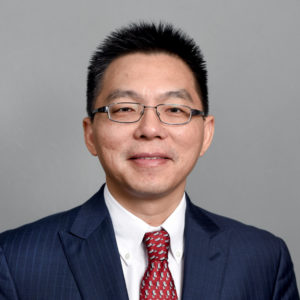 Junshan Zhang received his Ph.D. degree from the School of ECE at Purdue University in 2000. He joined the School of ECEE at Arizona State University in August 2000, where he has been Fulton Chair Professor since 2015. His research interests fall in the general field of information networks and data science, including communication networks, edge computing and machine learning for IoT, mobile social networks, smart grid. His current research focuses on fundamental problems in information networks and data science, including edge computing and machine learning in IoT and 5G, IoT data privacy/security, information theory, stochastic modeling and control for smart grid.
Junshan Zhang received his Ph.D. degree from the School of ECE at Purdue University in 2000. He joined the School of ECEE at Arizona State University in August 2000, where he has been Fulton Chair Professor since 2015. His research interests fall in the general field of information networks and data science, including communication networks, edge computing and machine learning for IoT, mobile social networks, smart grid. His current research focuses on fundamental problems in information networks and data science, including edge computing and machine learning in IoT and 5G, IoT data privacy/security, information theory, stochastic modeling and control for smart grid.
Prof. Zhang is a Fellow of the IEEE, and a recipient of the ONR Young Investigator Award in 2005 and the NSF CAREER award in 2003. He received the IEEE Wireless Communication Technical Committee Recognition Award in 2016. His papers have won a few awards, including the Best Student Paper award at WiOPT 2018, the Kenneth C. Sevcik Outstanding Student Paper Award of ACM SIGMETRICS/IFIP Performance 2016, the Best Paper Runner-up Award of IEEE INFOCOM 2009 and IEEE INFOCOM 2014, and the Best Paper Award at IEEE ICC 2008 and ICC 2017. Building on his research findings, he co-founded Smartiply Inc, a Fog Computing startup company delivering boosted network connectivity and embedded artificial intelligence.
Prof. Zhang was TPC co-chair for a number of major conferences in communication networks, including IEEE INFOCOM 2012 and ACM MOBIHOC 2015. He was the general chair for ACM/IEEE SEC 2017, WiOPT 2016, and IEEE Communication Theory Workshop 2007. He was a Distinguished Lecturer of the IEEE Communications Society. He is currently serving as Editor-in-chief for IEEE Transactions on Wireless Communications and a senior editor for IEEE/ACM Transactions on Networking.
Rajesh M. Hegde, Indian Institute of Technology, India
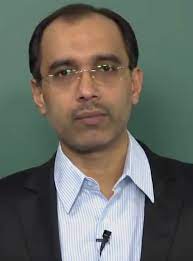 Prof. Hegde’s primary research contributions at IIT Kanpur have been in the areas of Sensor Array and Multi-channel signal processing, Automatic Recognition of Spoken Indian Languages, Multi modal signal processing, Wireless sensor networks, Internet of Things (IoT), Cyber Physical Systems (CPS) and ICT for socially relevant applications like Agriculture. As part of this effort two laboratories namely Multi modal signal processing Lab (MiPS Lab) and Wireless Sensor Networks Lab (WSN Lab) have been established. The laboratories are equipped with state of the art equipment like Audio-Visual arrays (Linear, circular and spherical), Acoustic Cameras, and a state of the art wireless sensor network test bed. Significant funding has been generated from both Sponsored research and Industrial consultancy projects from various funding agencies including DST, MietY, MHRD, Samsung, LG, and BSNL which are supplementing his groups research. He has made some significant contributions in the area of array signal processing and source separation. Some of his other significant contributions are in the areas of multi sensor data fusion for localization and node tracking in the context of mobile wireless sensor networks. This work has also led to the development of several new technologies with specific applications in ICT, Teleconferencing, Internet of things (IoT) and Cyber Physical Systems (CPS). His research group has also been very active in the development and deployment of socially relevant applications in the Indian Context and subsequent transfer of this technology to Industry. Some of the successful technology transfers include Digital Mandi for the Indian Kisan, Intelligent Video Retrieval on Cell phones (transferred to BSNL), and Video/Audio Analyser to LG India.
Prof. Hegde’s primary research contributions at IIT Kanpur have been in the areas of Sensor Array and Multi-channel signal processing, Automatic Recognition of Spoken Indian Languages, Multi modal signal processing, Wireless sensor networks, Internet of Things (IoT), Cyber Physical Systems (CPS) and ICT for socially relevant applications like Agriculture. As part of this effort two laboratories namely Multi modal signal processing Lab (MiPS Lab) and Wireless Sensor Networks Lab (WSN Lab) have been established. The laboratories are equipped with state of the art equipment like Audio-Visual arrays (Linear, circular and spherical), Acoustic Cameras, and a state of the art wireless sensor network test bed. Significant funding has been generated from both Sponsored research and Industrial consultancy projects from various funding agencies including DST, MietY, MHRD, Samsung, LG, and BSNL which are supplementing his groups research. He has made some significant contributions in the area of array signal processing and source separation. Some of his other significant contributions are in the areas of multi sensor data fusion for localization and node tracking in the context of mobile wireless sensor networks. This work has also led to the development of several new technologies with specific applications in ICT, Teleconferencing, Internet of things (IoT) and Cyber Physical Systems (CPS). His research group has also been very active in the development and deployment of socially relevant applications in the Indian Context and subsequent transfer of this technology to Industry. Some of the successful technology transfers include Digital Mandi for the Indian Kisan, Intelligent Video Retrieval on Cell phones (transferred to BSNL), and Video/Audio Analyser to LG India.
Hung-Yu Wei
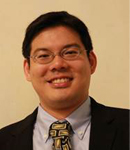 Hung‐Yu Wei is a Professor in Department of Electrical Engineering and Graduate Institute of Communications Engineering, National Taiwan University. Currently, he serves as Associate Chair in Department of Electrical Engineering. He received the B.S. degree in electrical engineering from National Taiwan University in 1999. He received the M.S. and the Ph.D. degree in electrical engineering from Columbia University in 2001 and 2005 respectively. He was a summer intern at Telcordia Applied Research in 2000 and 2001. He was with NEC Labs America from 2003 to 2005. He joined Department of Electrical Engineering at the National Taiwan University in July 2005. His research interests include next‐generation wireless broadband networks, IoT, vehicular networking, fog/edge computing, cross‐layer design and optimization in wireless multimedia communications, and game theoretical models for communications networks. He received NTU Excellent Teaching Award in 2008 and 2018. He also received “Recruiting Outstanding Young Scholar Award” from the Foundation for the Advancement of Outstanding Scholarship in 2006, K. T. Li Young Researcher Award from ACM Taipei/Taiwan Chapter and The Institute of Information and Computing Machinery in 2012, Ministry of Science and Technology Research Project for Excellent Young Scholars in 2014, Excellent Young Engineer Award from the Chinese Institute of Electrical Engineering in 2014, Wu Ta You Memorial Award from MOST in 2015, and Outstanding Research Award from MOST in 2020. He was a consulting member of Acts and Regulation Committee of National Communications Commission during 2008‐2009. He served as a division director in NTU Computer and Information Networking Center during 2016‐2017. He has been actively participating in NGMN, IEEE 802.16, 3GPP, IEEE P1934, and IEEE P1935 standardization. He serves as Vice Chair of IEEE P1934 Working Group to standardize fog computing and networking architecture. He serves as Secretary for IEEE Fog/Edge Industry Community. He also serves as an Associate Editor for IEEE IoT journal. He is an IEEE certified Wireless Communications Professional. He was the Chair of IEEE VTS Taipei Chapter during 2016‐ 2017. He is currently the Chair of IEEE P1935 working group for edge/fog management and orchestration standard.
Hung‐Yu Wei is a Professor in Department of Electrical Engineering and Graduate Institute of Communications Engineering, National Taiwan University. Currently, he serves as Associate Chair in Department of Electrical Engineering. He received the B.S. degree in electrical engineering from National Taiwan University in 1999. He received the M.S. and the Ph.D. degree in electrical engineering from Columbia University in 2001 and 2005 respectively. He was a summer intern at Telcordia Applied Research in 2000 and 2001. He was with NEC Labs America from 2003 to 2005. He joined Department of Electrical Engineering at the National Taiwan University in July 2005. His research interests include next‐generation wireless broadband networks, IoT, vehicular networking, fog/edge computing, cross‐layer design and optimization in wireless multimedia communications, and game theoretical models for communications networks. He received NTU Excellent Teaching Award in 2008 and 2018. He also received “Recruiting Outstanding Young Scholar Award” from the Foundation for the Advancement of Outstanding Scholarship in 2006, K. T. Li Young Researcher Award from ACM Taipei/Taiwan Chapter and The Institute of Information and Computing Machinery in 2012, Ministry of Science and Technology Research Project for Excellent Young Scholars in 2014, Excellent Young Engineer Award from the Chinese Institute of Electrical Engineering in 2014, Wu Ta You Memorial Award from MOST in 2015, and Outstanding Research Award from MOST in 2020. He was a consulting member of Acts and Regulation Committee of National Communications Commission during 2008‐2009. He served as a division director in NTU Computer and Information Networking Center during 2016‐2017. He has been actively participating in NGMN, IEEE 802.16, 3GPP, IEEE P1934, and IEEE P1935 standardization. He serves as Vice Chair of IEEE P1934 Working Group to standardize fog computing and networking architecture. He serves as Secretary for IEEE Fog/Edge Industry Community. He also serves as an Associate Editor for IEEE IoT journal. He is an IEEE certified Wireless Communications Professional. He was the Chair of IEEE VTS Taipei Chapter during 2016‐ 2017. He is currently the Chair of IEEE P1935 working group for edge/fog management and orchestration standard.
Title: Enable Intelligent Edge/Fog Computing and Networking with Management and Orchestration Mechanisms
Abstract: Edge/fog computing is a key enabling technology for low latency applications. There are challenges and opportunities to realize the full potential of the emerging edge/fog computing and networking technologies. To effectively deploy and operate edge/fog computing and networking systems, autonomous management is needed. In this talk, I will describe issues and the proposed mechanisms for intelligent edge/fog management and orchestration. With intelligent management and orchestration algorithms, we will be able to efficiently allocate computing and networking resources to achieve better user Quality of Experience (QoE). In addition, I will describe the development status of IEEE P1935 standard, which specifies edge/fog management and orchestration.
Christopher Brinton, Purdue University
 Dr. Christopher G. Brinton is an Assistant Professor in the School of Electrical and Computer Engineering at Purdue University. Previously he was the Associate Director of the EDGE Lab and a Lecturer of Electrical Engineering at Princeton University. Dr. Brinton’s research interest is at the intersection of machine learning and networked systems, specifically in distributed machine learning, behavioral signal processing, and data-driven network optimization. He is a co-founder of Zoomi Inc., a big data startup company that has provided learning optimization to more than one million users worldwide and holds a US Patent in machine learning for individualized learning. His book The Power of Networks: 6 Principles That Connect our Lives and associated Massive Open Online Courses (MOOCs) have reached over 400,000 students to date. Since joining Purdue ECE in fall 2019, Dr. Brinton has won a 2019 Purdue Seed for Success Award, the 2020 Purdue ECE Outstanding Faculty Mentor Award, and the 2020 Ruth and Joel Spira Outstanding Teacher Award. Dr. Brinton received the PhD (with honors) and Master’s Degrees from Princeton in 2016 and 2013, and the BS Degree (valedictorian) from The College of New Jersey in 2011, all in Electrical Engineering.
Dr. Christopher G. Brinton is an Assistant Professor in the School of Electrical and Computer Engineering at Purdue University. Previously he was the Associate Director of the EDGE Lab and a Lecturer of Electrical Engineering at Princeton University. Dr. Brinton’s research interest is at the intersection of machine learning and networked systems, specifically in distributed machine learning, behavioral signal processing, and data-driven network optimization. He is a co-founder of Zoomi Inc., a big data startup company that has provided learning optimization to more than one million users worldwide and holds a US Patent in machine learning for individualized learning. His book The Power of Networks: 6 Principles That Connect our Lives and associated Massive Open Online Courses (MOOCs) have reached over 400,000 students to date. Since joining Purdue ECE in fall 2019, Dr. Brinton has won a 2019 Purdue Seed for Success Award, the 2020 Purdue ECE Outstanding Faculty Mentor Award, and the 2020 Ruth and Joel Spira Outstanding Teacher Award. Dr. Brinton received the PhD (with honors) and Master’s Degrees from Princeton in 2016 and 2013, and the BS Degree (valedictorian) from The College of New Jersey in 2011, all in Electrical Engineering.
Flavio Cirillo, Research Scientist of the IoT research team, NEC Laboratories Europe (NLE), Heidelberg, Germany.
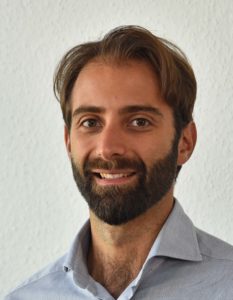 Dr. Flavio Cirillo is a Research Scientist of the IoT research team at NEC Laboratories Europe (NLE), Heidelberg, Germany. His research topics include AI/ML applied to IoT, and IoT analytics platforms focusing on cloud-edge, federation, privacy, data usage control aspects, mainly in the scenario of Smart Cities. He has worked in many IoT related European research projects. He has obtained a PhD in Information Technology and Electric Engineering at the University Federico II of Naples (Italy). He serves in technical committees for IEEE conferences, and IEEE, Elsevier, MDPI, and Wiley journals. He is member of IEEE, ACM and Communication Society (ComSoc).
Dr. Flavio Cirillo is a Research Scientist of the IoT research team at NEC Laboratories Europe (NLE), Heidelberg, Germany. His research topics include AI/ML applied to IoT, and IoT analytics platforms focusing on cloud-edge, federation, privacy, data usage control aspects, mainly in the scenario of Smart Cities. He has worked in many IoT related European research projects. He has obtained a PhD in Information Technology and Electric Engineering at the University Federico II of Naples (Italy). He serves in technical committees for IEEE conferences, and IEEE, Elsevier, MDPI, and Wiley journals. He is member of IEEE, ACM and Communication Society (ComSoc).
Title: Fog and Edge Data Analytics in the 5G Era
Abstract: The 5G benefits to boost the performances in terms of latency, throughput and scale (number of handled devices) might be jeopardized if the services are relying only on the cloud. For example, a smart city infrastructure forms a large scale Internet of Things (IoT) system with widely deployed IoT devices, such as sensors and actuators that generate a huge volume of data. Given this large scale and geo-distributed nature of such IoT systems, fog/edge computing has been considered as an affordable and sustainable computing paradigm to enable smart city IoT services. However, it is still a major challenge for developers to program their services to leverage benefits of fog/edge computing. Developers have to figure out many details, such as: i) how to dynamically configure and manage data processing tasks over cloud and fog/edge and among federation of system, ii) how to optimize task allocation for minimal latency and bandwidth consumption, and iii) how to handle privacy and data usage policies into a federation of systems. This talk addresses these challenges with a standard- based fog computing framework, namely FogFlow. FogFlow’s programming model allows IoT service developers to program elastic IoT services easily over cloud and edge. Further, in the talk we show also how the framework can handle automatically data usage constraints in data sharing scenarios. During the talk it will be presented a real implementation of a 5G network and fog/edge computing orchestration system under development in Murcia (Spain).
Hank Huang, National YangMing ChiaoTung University, Taiwan
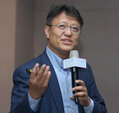 Prof. Huang was a researcher at Bell labs since 1996 and joined National YangMing ChiaoTung University as a professor at 2002. Besides of more than 50 patents and 100 publications, he is co-founder of few companies focusing on AI couching (Gomore, 2013), Edge Security (FiduciaEdge, 2020), and Block Chain (Red Building Labs, 2020). Prof. Huang involves heavily in entrepreneurship program through his center of Industry Accelerator and Patent Strategy (IAPS) that accelerates more than 50 selected companies annually since 2013 in the area of Sports Tech, Agri-tech, BioICT and ICT (including also AI and Block Chain). Through his broad involvement in research and startup ecosystem, Prof. Huang has severed as a Chairman in CBIA (2013-2018), AABI (2017-2019), and AAN ( since 2019) for promoting Research Commercialization, Incubator, and Accelerator programs in Asia.
Prof. Huang was a researcher at Bell labs since 1996 and joined National YangMing ChiaoTung University as a professor at 2002. Besides of more than 50 patents and 100 publications, he is co-founder of few companies focusing on AI couching (Gomore, 2013), Edge Security (FiduciaEdge, 2020), and Block Chain (Red Building Labs, 2020). Prof. Huang involves heavily in entrepreneurship program through his center of Industry Accelerator and Patent Strategy (IAPS) that accelerates more than 50 selected companies annually since 2013 in the area of Sports Tech, Agri-tech, BioICT and ICT (including also AI and Block Chain). Through his broad involvement in research and startup ecosystem, Prof. Huang has severed as a Chairman in CBIA (2013-2018), AABI (2017-2019), and AAN ( since 2019) for promoting Research Commercialization, Incubator, and Accelerator programs in Asia.
Yuan-Yao (Mike) Lou, Purdue University
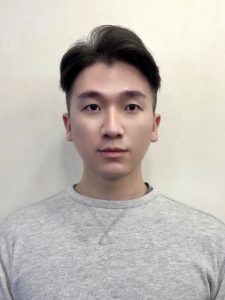 Yuan-Yao (Mike) Lou is an incoming Ph.D. student in ECE at Purdue University for Fall 2021 whose advisors are Prof. Mung Chiang and Prof. Kwang Taik Kim. His research interests are in the area of Wireless Communication Network, Fog/Edge Computing, the Internet of Things (IoT), and Machine Learning for the 5G and future 6G network system design. Currently, he is an independent researcher working with Prof. Russell Hsing and Prof. Stephen Weinstein for the intelligent Fog/Edge computing system. Besides, he is a full-stack cloud developer at IoT Eye Inc. in charge of architecting the cloud system and developing cloud applications.
Yuan-Yao (Mike) Lou is an incoming Ph.D. student in ECE at Purdue University for Fall 2021 whose advisors are Prof. Mung Chiang and Prof. Kwang Taik Kim. His research interests are in the area of Wireless Communication Network, Fog/Edge Computing, the Internet of Things (IoT), and Machine Learning for the 5G and future 6G network system design. Currently, he is an independent researcher working with Prof. Russell Hsing and Prof. Stephen Weinstein for the intelligent Fog/Edge computing system. Besides, he is a full-stack cloud developer at IoT Eye Inc. in charge of architecting the cloud system and developing cloud applications.
Yuan-Yao (Mike) Lou received a B.S. degree in CS from National Chiao Tung University (NCTU) in 2015. In the summer of 2014, he was a research intern in the EDGE Lab at Princeton University under the supervision of Prof. Mung Chiang and Dr. Ming-Jye Sheng. After that, he received an M.S. degree in CS from National Taiwan University (NTU) under the supervision of Prof. Ai-Chun Pang. He worked as a senior software engineer for the software tools development and system design and automation in Silicon Motion Technology Corp. from 2017 to 2021. His publications, including one IEEE journal paper, two conference papers in IEEE and ACM, and one book chapter, are primarily related to the enhancement of the LTE system for IoT session management and Fog/Edge computing system design for Android wearable devices.
Stephen B. Weinstein. Life Fellow
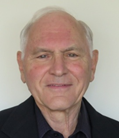 Stephen B. Weinstein, who lives in New York City, received his SB, MSc, and PhD degrees in Electrical Engineering from MIT, the University of Michigan, and the University of California at Berkeley respectively. Dr. Weinstein conducted early research and development of data-driven echo cancellation, software generation of OFDM signals, and multimedia communications, and was active in the 1990s IEEE P1520 standards initiative on open network control interfaces. He received the 2006 Eduard Rhein Foundation (Germany) basic research prize for his foundational work on OFDM and IEEE’s 2016 Emberson Award for contributions to IEEE publications, awards and globalization. He is the author of Getting the Picture: A Guide to CATV and the New Electronic Media (IEEE Press, 1984), co-author of the textbook Data Communication Principles (Plenum, 1992), the author of The Multimedia Internet (Springer, 2005), and co-author of the ComSoc Guide to Passive Optical Networks (Wiley-IEEE Press, 2012). Dr. Weinstein is a Life Fellow of the IEEE and a past President (1996-97) of the IEEE Communications Society (ComSoc). He was an early founding Editor in Chief of IEEE Communications Magazine.
Stephen B. Weinstein, who lives in New York City, received his SB, MSc, and PhD degrees in Electrical Engineering from MIT, the University of Michigan, and the University of California at Berkeley respectively. Dr. Weinstein conducted early research and development of data-driven echo cancellation, software generation of OFDM signals, and multimedia communications, and was active in the 1990s IEEE P1520 standards initiative on open network control interfaces. He received the 2006 Eduard Rhein Foundation (Germany) basic research prize for his foundational work on OFDM and IEEE’s 2016 Emberson Award for contributions to IEEE publications, awards and globalization. He is the author of Getting the Picture: A Guide to CATV and the New Electronic Media (IEEE Press, 1984), co-author of the textbook Data Communication Principles (Plenum, 1992), the author of The Multimedia Internet (Springer, 2005), and co-author of the ComSoc Guide to Passive Optical Networks (Wiley-IEEE Press, 2012). Dr. Weinstein is a Life Fellow of the IEEE and a past President (1996-97) of the IEEE Communications Society (ComSoc). He was an early founding Editor in Chief of IEEE Communications Magazine.
Russell Hsing, National Yang Min Chiao Tung University (former National Chiao Tung University) in Taiwan
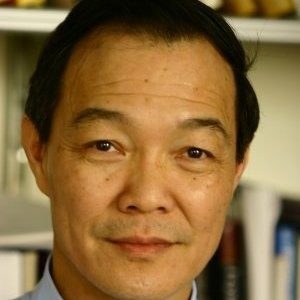 T. Russell Hsing is IEEE Life Fellow and Fellow for the British Computer Society and SPIE. He accumulated rich R&D experience of 43 years as technical staff, research director and executive director through affiliations with Burroughs, Xerox, GTE Labs, and Bellcore/Telcordia/Ericsson before March, 2012. He is now Honorary Chair Professor with the National Yang Min Chiao Tung University (former National Chiao Tung University) in Taiwan, Distinguished Visiting Professor with IIT Kanpur in India, and also has been visiting professors or adjunct professors at numerous universities in US, Singapore, China, Hong Kong, Korea since March, 2012. He has been pioneering the technologies commercialization through joint business ventures and academic spin-offs. He is advisory council member for the Harvard Business Review (HBR), and had executive education from MIT Salon School and Stanford Business School. Currently he also serves as board member/ board advisor academic spin-offs (OmniEyes in Taiwan, RIMEDO Labs in Poland) and Smartiply in US (2015 ~ 2019). He had been board of director for the Open Fog Consortium in 2016-2018. He has been teaching the courses of “Technology Entrepreneurship: From IP to IPO” (since 2014) and “Internet Economics” (since 2017) during past few years. He has been active as an IEEE ComSoc volunteer for over 40 years. He has served many committees (such as IEEE Fellow Evaluation Committee, IEEE Kiyo Tomiyasu Award Committee, and IEEE Eric Sumner Committee, etc). He has led an Ad Hoc Committee to Review the IEEE Fellow Evaluation Criteria and Process since June, 2015, and then made final recommendations to the Board of Governors for the IEEE ComSoc in December, 2017. He received his M.S. & PhD degrees from the University of Rhode Island (1974 and 1977) at the US, and BS from the National Chiao Tung University at 1970 in Taiwan. Currently he is member of Advisory Board for the IEEE Fog/Edge Industry Community and Member of the Advisory Council for Harvard Business Review (US).
T. Russell Hsing is IEEE Life Fellow and Fellow for the British Computer Society and SPIE. He accumulated rich R&D experience of 43 years as technical staff, research director and executive director through affiliations with Burroughs, Xerox, GTE Labs, and Bellcore/Telcordia/Ericsson before March, 2012. He is now Honorary Chair Professor with the National Yang Min Chiao Tung University (former National Chiao Tung University) in Taiwan, Distinguished Visiting Professor with IIT Kanpur in India, and also has been visiting professors or adjunct professors at numerous universities in US, Singapore, China, Hong Kong, Korea since March, 2012. He has been pioneering the technologies commercialization through joint business ventures and academic spin-offs. He is advisory council member for the Harvard Business Review (HBR), and had executive education from MIT Salon School and Stanford Business School. Currently he also serves as board member/ board advisor academic spin-offs (OmniEyes in Taiwan, RIMEDO Labs in Poland) and Smartiply in US (2015 ~ 2019). He had been board of director for the Open Fog Consortium in 2016-2018. He has been teaching the courses of “Technology Entrepreneurship: From IP to IPO” (since 2014) and “Internet Economics” (since 2017) during past few years. He has been active as an IEEE ComSoc volunteer for over 40 years. He has served many committees (such as IEEE Fellow Evaluation Committee, IEEE Kiyo Tomiyasu Award Committee, and IEEE Eric Sumner Committee, etc). He has led an Ad Hoc Committee to Review the IEEE Fellow Evaluation Criteria and Process since June, 2015, and then made final recommendations to the Board of Governors for the IEEE ComSoc in December, 2017. He received his M.S. & PhD degrees from the University of Rhode Island (1974 and 1977) at the US, and BS from the National Chiao Tung University at 1970 in Taiwan. Currently he is member of Advisory Board for the IEEE Fog/Edge Industry Community and Member of the Advisory Council for Harvard Business Review (US).
Tomasz Zernicki, CEO of Zylia, Poland
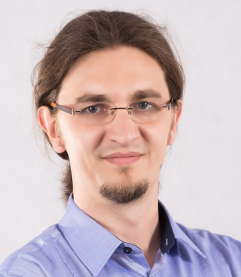 Tomasz Zernicki, co-founder, and CEO of Zylia (www.zylia.co) innovative company which provides tools for 3D audio recording and music production. Tomasz holds Ph.D. degrees in Electronics and Telecommunications. His professional interests concentrate on: 360/VR music production, spatial sound processing, and recording. As an audio expert, he takes an active role in the Moving Picture Expert Group (MPEG) standardization committee work. He has significant contributions to the audio compression standards such as MPEG-D USAC and MPEG-H 3D Audio. He was also Awarded by The Polish National Centre for Research and Development for outstanding young scientists in Poland. Moreover, he was selected as one of the New Europe 100 challengers and innovators.
Tomasz Zernicki, co-founder, and CEO of Zylia (www.zylia.co) innovative company which provides tools for 3D audio recording and music production. Tomasz holds Ph.D. degrees in Electronics and Telecommunications. His professional interests concentrate on: 360/VR music production, spatial sound processing, and recording. As an audio expert, he takes an active role in the Moving Picture Expert Group (MPEG) standardization committee work. He has significant contributions to the audio compression standards such as MPEG-D USAC and MPEG-H 3D Audio. He was also Awarded by The Polish National Centre for Research and Development for outstanding young scientists in Poland. Moreover, he was selected as one of the New Europe 100 challengers and innovators.
Title: Streaming of live virtual concerts – the application of Virtual Reality and navigable 3D audio for live events
Abstract: This presentation addresses challenges related to streaming and capturing immersive audio scenes for virtual reality or music production. This topic is essential because immersive audio is playing a significant role in today’s businesses related to film making, games, streaming, and fully immersive and navigable audio is a critical component of that. Primarily, the presentation focuses on recording sound and enabling six-degrees-of-freedom playback, making use of multiple simultaneous and synchronized Higher Order Ambisonics (HOA) recordings. Such a strategy allows users to navigate a simulated 3D space and listen to the six-degrees-of-freedom recordings from different perspectives.


